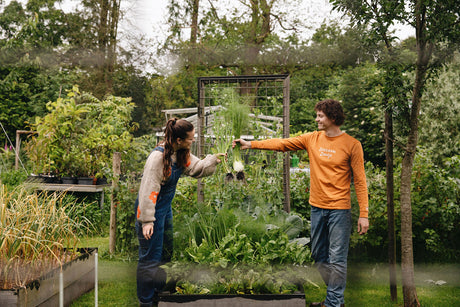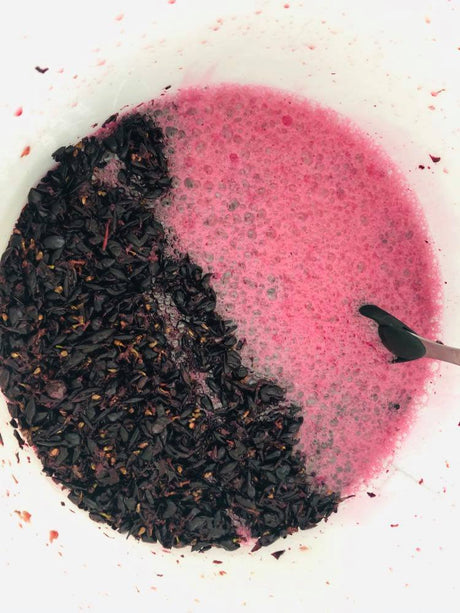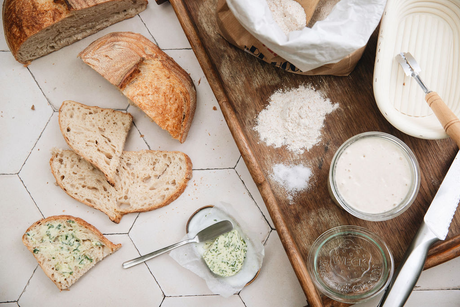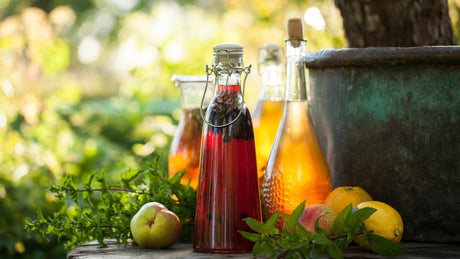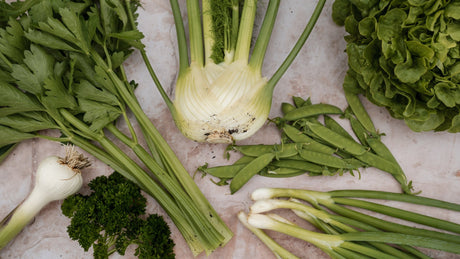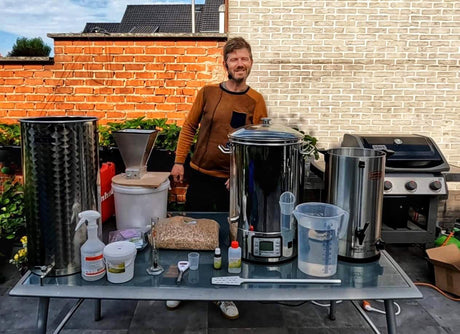Choosing seeds is difficult for many people. Because what should you look for? And is there such a thing as bad seeds? In this blog we explain 6 different types of seeds : GMO, F1 Hybrid, conventional, organic, Heirloom (open-pollinated) and coated (pill) seeds.
What are GMO seeds?
Let's start with, for many people, the biggest culprit of the list: GMO, Genetically Modified Organism. The seeds and plants that grow from these seeds are genetically modified in a laboratory. During this genetic modification, genes from other plants but sometimes also other organisms such as fungi and animals are added to the gene of the plant. For example, corn is easily contaminated by a bacterium called Bacillus thuringiensis. With GMO corn, they have added a piece of the genes of this bacterium to the DNA of corn. This ensures that the bacterium can no longer contaminate the corn. This sounds like a great solution, but it is difficult to predict what side effects this DNA change may have. Fortunately for you as a vegetable gardener, GMO seeds are actually not for sale anywhere. They are sold to companies and if you want to buy them as a private individual, you really have to look for them specifically. So you will not just come across them at a seed shop or store around the corner.
What are F1 Hybrid seeds?
Next in line are the F1 hybrid seeds. There is sometimes a lot of confusion about the difference between F1 hybrids and GMO. This makes sense because they are both grown under laboratory-like conditions, which makes many people expect them to be the same. However, you cannot make a GMO seed without a laboratory, but you can make an F1 hybrid. It is just a lot cheaper and easier to make a hybrid seed in a controlled environment such as a laboratory. A hybrid seed is nothing more than 2 plants with good characteristics, for example; a tomato that is naturally resistant to disease and a tomato that produces super large, tasty tomatoes, to cross by means of cross-pollination. This happens every day in nature. When you cross these tomatoes well, you eventually get a tomato that has the good characteristics of both parents. A tomato plant that is resistant to disease and produces super large, tasty tomatoes. A hybrid of the 2 parent plants with good characteristics. But what does F1 mean? It says nothing more than that the seed you buy is the first offspring of the 2 plants with good characteristics.
The big disadvantage of F1 seed for us as a vegetable gardener is also the advantage for the seed seller. When you harvest seeds from the plants that have grown from the F1 seed and sow them again, you grow the F2 generation. The second generation after the parent plants with good characteristics. However, this F2 plant will most likely not have the great characteristics of the parents and F1. This plant may produce very small tomatoes and is not really disease resistant. In this way, we as gardeners have no use for harvesting these seeds and we remain dependent on the person who sold us the F1 seed.
F1 seed is not necessarily bad. It is actually very good seed if you have little space and want to be assured of a strong, resistant and well-producing plant. There is now even organic F1 hybrid seed. But if you do not want to be dependent on seed companies and want to provide your own seeds every year, then you want to harvest seeds from your plants. Then you have no use for F1 seed and you can better choose other seeds.
Conventional seeds
Conventional seed is actually the most common seed. It is harvested from plants that may be fed with artificial fertilizer and sprayed with pesticide, herbicide and fungicide. All agents that you would rather not see on your vegetables and that also endanger nature. The seed is also often sprayed with anti-fungal and anti-germination agents before it goes into the bag to protect it. Conventional seeds have been grown in the same way for years and are also used in agriculture. Because they have been produced for so long, there is a huge choice of types, it is quite cheap and most garden centers have these as standard in their assortment.
What are Organic Seeds?
Organic seed is grown according to a long list of what may and may not happen to the plants and seeds. For example, unlike conventional seed, the seeds are grown without artificial fertilizers and not sprayed with chemicals. However, organic pesticides are allowed. So if you meet the list of requirements for organic seeds and can prove this, you can call your seed organic. If you want an organic vegetable garden, you ideally also choose organic seed.
Coated seed - pilled seeds
Pellet seeds are conventional seeds that are poured into a jacket. The seed is pelleted. There are two reasons for doing this. The first reason is because the seed is easier to process for agricultural machines. Lettuce seed, for example, is incredibly small, but when you put that seed in a larger pill, it becomes a lot easier to process it mechanically. The second reason is to give the seeds pesticides, growth-promoting substances or other useful substances. In this way, the seed can be better protected and, for example, it is ensured that it does not germinate too early. You may come across pelleted seeds in your search for seeds, but they are not sold very much to vegetable gardeners.
What are heirloom seeds (open-pollinated)
Then we come to the last category of seeds, the heirloom seeds. But what are they? Heirloom literally means 'heirloom'. These seeds are heirlooms of plants that are often a hundred years old. However, there is no fixed definition for the name heirloom. Seeds do not have to come from a plant variety that has existed for a hundred years, but often a variety has existed for a very long time and is unchanged. The varieties that may call themselves heirloom have proven themselves as good varieties that give good harvests without pesticides and artificial fertilizers. Many people like to grow these old varieties. The advantages are that they are often adapted to the climate and environment in which they are grown, they are reasonably resistant to diseases, they give a good harvest and you can win your own seeds from the plant, which means you can be self-sufficient. The seeds almost always give plants that resemble their parents, which means your harvest is good every year. This makes heirloom seeds attractive to many vegetable gardeners.
And what types of seeds do you choose?
There is no such thing as good or bad seed, everything grows into a plant. We will leave GMO out of consideration here, since we as vegetable gardeners cannot easily buy it. Heirloom is not better or worse than F1 hybrid seed, it is just different. And conventional seed is the same as organic seed, only grown under different conditions, because artificial fertilizers and pesticides may be used with conventional seed, while organic seed may not. But a San Marzano tomato is a San Marzano tomato, whether it is organic or conventional seed.
In most cases, we choose to buy organic and/or heirloom seed, whether that is normal or F1 hybrid seed. The reason to choose organic F1 hybrid seed is, for example, space. We only have room for a few cucumber plants. We want to be sure that we can eat cucumbers and by buying F1 seed, the chance is greater that the plants do not get sick and have a good production. So why not use the advantages of F1 Hybrids? But to be honest, we also sometimes choose conventional seed when organic seed is not available and we really want a certain variety, such as the case with Kalettes.
Another important reason for us to buy organic or heirloom seeds is that we prefer to give our money to smaller idealistic companies. Conventional seeds are sold by large global players on the seed market, while organic or heirloom seeds are often grown by small companies. Organic and heirloom seeds are also often stronger. Conventional seeds are obtained from plants that have been protected by chemical agents their entire lives. With organic and heirloom seeds, the mother plant is not or less protected and if it gets a disease, it will probably not produce seeds. The plants that do not get sick and do produce seeds are the strongest. This means that every year you get seeds from the strongest and most disease-resistant plants. As a result, the plants that you grow from the seeds will be better adapted to your location, grow better and become less likely to get sick.
Don't let them drive you crazy!
Ultimately, we want as many people as possible to start a vegetable garden, whether that's with conventional seeds or heirloom seeds. You now know what the name of the seeds says about the seeds and you can hopefully make your own choice. We don't judge anyone (and you shouldn't want that either!) because they didn't buy organic seeds because the budget simply wasn't enough. Better to grow vegetables from your own garden with conventional seeds than no vegetables from your own garden at all. So buy seeds that fit your budget or swap with friends or acquaintances. You usually don't need the whole bag anyway. Choose heirloom if you really want to harvest your own seeds so that you don't have to depend on anyone. You can improve your vegetable garden every year and learn about what's good and what's better. Step by step, vegetable by vegetable.




